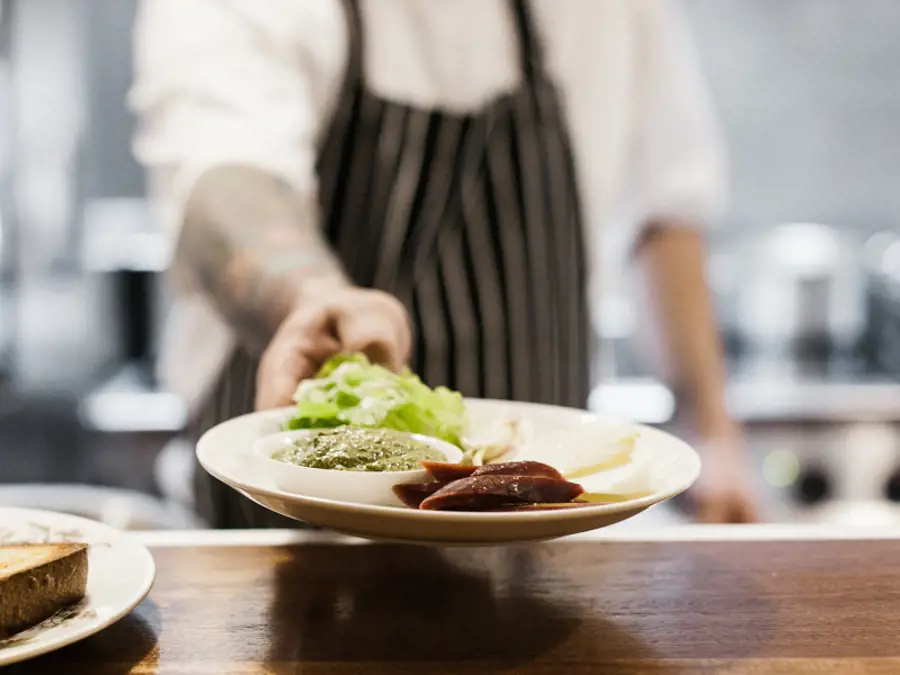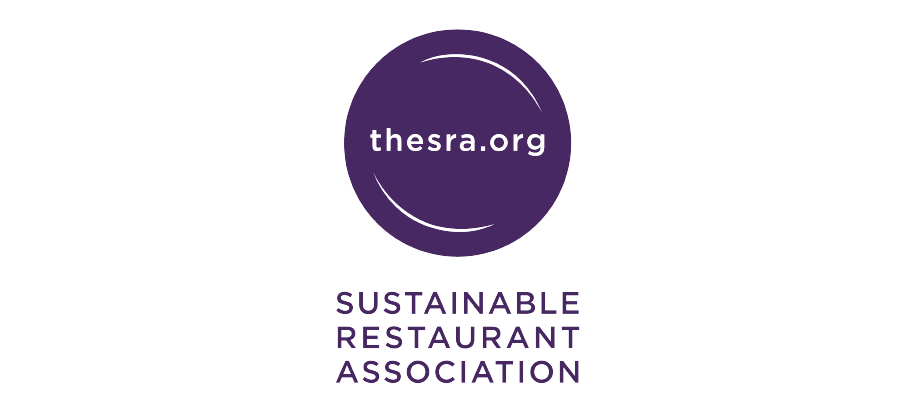How You Can Put More
'Mindful Meat' On the Menu
12 September 2024
Share this exclusive content from Saladplate

Photo Credit: The Sustainable Restaurant Association (TRSA)
IN THIS GUEST BLOG, LOVE BRITISH FOOD AMBASSADOR JO BRUCE EXPLORES HOW HOSPITALITY BUSINESSES CAN BUILD THE CONCEPT OF MINDFUL MEAT INTO THEIR MENUS ALONG WITH MORE PLANT-BASED DISHES.
In the past couple of years, it’s been a case of ‘move over meat’ on menus, with veg-centric dishes taking a bigger slice of the action as consumers continue to look for healthier and more sustainable dishes.
There is now continuing pressure on UK businesses – including hospitality operators – to reduce their carbon footprint (with the meat and dairy industries big contributors of GHG emissions) and to cater for the ongoing increase in UK consumers who now follow a plant-based or flexitarian diet. Restaurant and pub operators who aren’t swapping more veg-based dishes into their offerings run the risk of lost bookings from the 63% of consumers who now consider themselves to be sustainably conscious.
Accreditations like the Food Made Good Standard are also helping to encourage top chefs to use less meat and more veg on menus. Some restaurateurs, such as Gladwin Brothers, have even gone full circle with their approach to add meat to dishes at The Shed in London’s Notting Hill.
At The Bull Inn at Totnes, winner of The Estrella Damm Sustainability Award at the National Restaurant Awards 2024 (an award judged by our friends at The Sustainable Restaurant Association), there is a big focus on vegetable-based dishes and mindful meat. The approach of the pub across dining, trading and its team is a set of ‘No Bull Rules’ (which are featured on its website). Chefs take a veg-first approach to dishes, always aiming to incorporate beautiful seasonal vegetables.
More plants, many benefits
Adding more meat-free or plant-based dishes can have a range of business benefits, including increased sales, cost savings and better margins, and increased creativity in the kitchen.
Whilst some pub and restaurant operators may feel that rebalancing their main menu heavily in favour of plant-based dishes doesn’t work for their local customer demographics and is a diversion from their venue’s reputation, there is certainly an opportunity for more meat-free options at every establishment. You could even start by focusing on just one day a week to garner interest. For example, at steak and seafood restaurant The Coal Shed in Brighton, they run successful ‘Meat Free Mondays’ in January.
It’s 15 years since the Meat Free Mondays campaign was launched by Paul, Stella and Mary McCartney, with a range of independent and chain restaurants successfully involved including Itsu and The Pond, which runs a 50% vegan menu through the week too. Brewer, bar and hotel operator BrewDog runs Plant-Based Mondays at its venues with two-for-one deals on all veggie and vegan mains every Monday, and 50% of its menus are plant-based.
Why not offer a ‘Veg of The Week’ or ‘Celebration of Veg’ daily special, or perhaps trial Meat Free Mondays or a ‘From the Garden’ tasting menu or special dinner during this year’s Love British Food Fortnight (20th September-6th October)? This is also a great way to get customer feedback and sales insights on seasonal veg-rich dishes, with the possibility of adding them to the main menu.
Another way of pub and restaurant operators adding more vegetables to menus and reducing their carbon footprint is to establish their own kitchen garden. With their 25-mile home-grown and locally sourced menus, The PIG Hotel Group has made this a USP, a wonderful hook around which to build their brand.
While it obviously isn’t practical or cost-effective for all operators to establish and/or maintain a kitchen garden, there are ways of embracing this concept on a smaller scale. You could help to set up a community garden run by local volunteers that grows produce for your venue, or invite local gardeners and allotment holders to sell or donate surplus produce to your kitchen. Honesty market stalls, garden workshops and seed swap events are all related activities that can also add value to your venues’ offer around this.
For hospitality operators that are increasingly trying to be more sustainable with produce sourced for their menus, but who wish to continue to include meat dishes to meet the needs of their customer base, ‘mindful meat’ is one way to balance this. This means a focus on sourcing ‘better’ meat options in terms of sustainability through procurement policies and the agricultural practices you support through your sourcing.
‘Mindful Meat’ matters
Whilst sourcing ‘better’ can be a tough balancing act for operators, with ongoing cost pressures to navigate, taking a ‘mindful meat’ approach can also help attract and retain the increasing number of consumers who care about where food comes from and how it is produced.
For operators like The Bull Inn at Totnes, ‘Mindful Meat’ means on telling farm-to-table stories and highlighting how much hard work and dedication goes into creating the British meat that goes on customers’ plates.
Using less meat in traditionally meat-based dishes is another way of taking a more sustainable approach. Chef Ollie Hunter, who had The Wheatsheaf at Chilton Foliat, produced a delicious burger with a certain percentage made up of non-meat ingredients such as mushrooms.

Source: The Sustainable Restaurant Association



